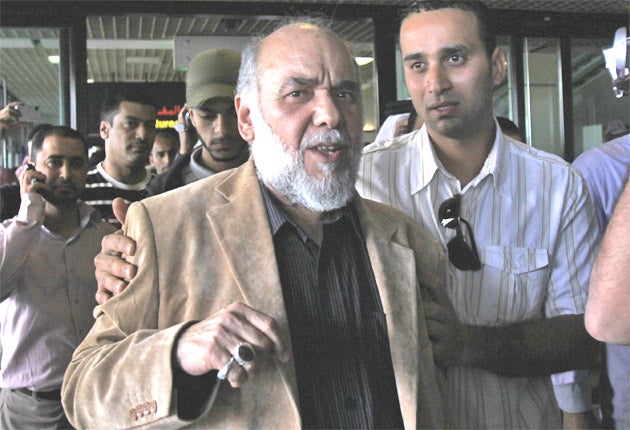Bahraini Shia defy crackdown as eight given life sentences
Anyone who supported the pro-democracy movement is vulnerable to being accused. The activists were accused of having links to a 'terrorist organisation abroad'

Your support helps us to tell the story
From reproductive rights to climate change to Big Tech, The Independent is on the ground when the story is developing. Whether it's investigating the financials of Elon Musk's pro-Trump PAC or producing our latest documentary, 'The A Word', which shines a light on the American women fighting for reproductive rights, we know how important it is to parse out the facts from the messaging.
At such a critical moment in US history, we need reporters on the ground. Your donation allows us to keep sending journalists to speak to both sides of the story.
The Independent is trusted by Americans across the entire political spectrum. And unlike many other quality news outlets, we choose not to lock Americans out of our reporting and analysis with paywalls. We believe quality journalism should be available to everyone, paid for by those who can afford it.
Your support makes all the difference.Bahrain has sentenced eight leading political activists to life in prison on charges of conspiring to overthrow the Government in a move likely to intensify unrest and discredit a proposal by the king for a national dialogue.
One of the 21 defendants – dressed in grey prison uniforms as they faced a military court – shouted: "We will continue our peaceful struggle," while others shook their fists and cried: "Peaceful, peaceful." They were forced out of the courtroom by police.
Crowds blocked roads with heaps of sand and urged marches as news spread of the convictions of the group, which includes some of the island kingdom's most popular leaders.
All but one belong to Bahrain's majority Shia community, which accuses the Government of persecution and discrimination.
Anybody in Bahrain who supported the pro-democracy movement, which began at the height of the Arab Spring on 14 February, is vulnerable to being accused of plotting against the Government at the behest of Iran. The sentenced activists were accused of having links to "a terrorist organisation abroad". Fourteen were tried in court and the other seven in absentia. In addition to the eight life sentences, 10 activists were given 15-year terms, two others received five years and one was sentenced to two years.
The decision is likely to undermine a US and UK-backed attempt to persuade the Sunni al-Khalifa monarchy to start a dialogue with the opposition.
America and Britain have been embarrassed by accusations of hypocrisy for denouncing human rights violations in Libya while ignoring compelling evidence of systematic torture by the state security forces in Bahrain.
King Hamad bin Isa al-Khalifa had called for a dialogue to start on 1 July, but this is likely to be a dead letter – either because a serious initiative was never intended or he does not have the power within the royal family to moderate the security forces' actions.
Among those sentenced to life were Abdulhadi al-Khawaja, a human rights activist; Abdel Wahab Hussain, the head of the Wafa party; and Hassan Mushaima, leader of the opposition Haq group.
Ibrahim Sharif, a Sunni leader who is head of the secular party Waad, was one of those who received five years in prison.
Wefaq, the main Shia opposition party, said after the verdicts that it was doubtful about attending the national dialogue talks.
The trial of 47 doctors and nurses resumes next week, during which senior consultants will be accused of supporting revolution, concealing weapons and distributing bags of blood for protesters to smear on themselves.
The defendants say they were abused, tortured and forced to sign false confessions and that they were only giving medical aid to protesters injured by the security forces.
At a session of the military court trying the medical staff this week, the defendants' lawyers were only allowed to meet with them for 15 minutes before the trial.
They could put questions to the seven prosecution witnesses only through the judge, who disallowed many of them. Families of those on trial allege one of the witnesses was the main interrogator who had tortured defendants.
The Government has been largely successful in persuading the ruling Sunni minority that pro-democracy protests were an Iranian-orchestrated conspiracy to take over the island.
The arrival of a Saudi-led military force in mid-March ushered in a brutal crackdown in which Shia mosques were targeted for destruction. The Government claimed bulldozing the mosques had no sectarian implications but was simply to apply unenforced building regulations.
Join our commenting forum
Join thought-provoking conversations, follow other Independent readers and see their replies
Comments